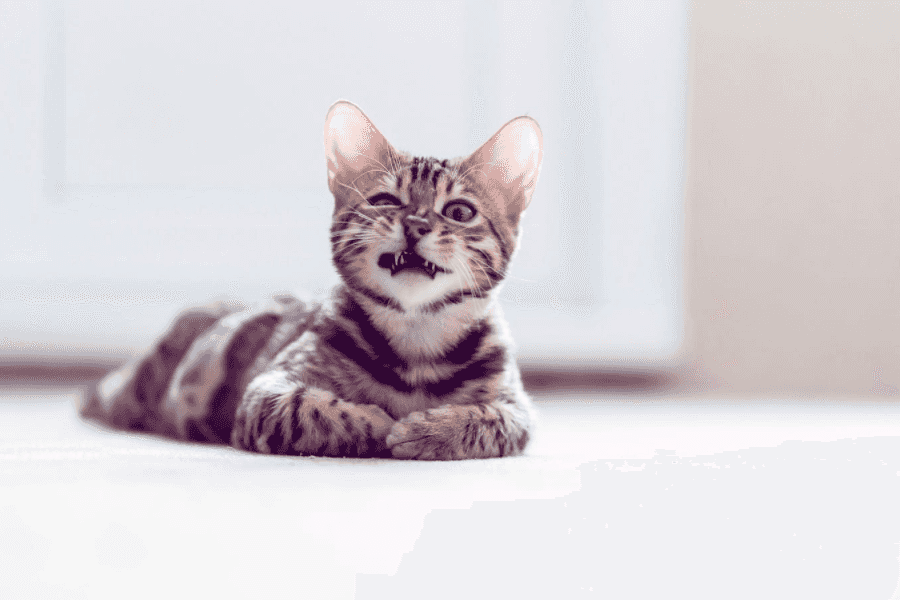Why Would a Cat Pee on You? 9 Common Reasons 🐱💦

Why Would a Cat Pee on Me? ![]()
If you’re a cat owner, you may have experienced the unpleasant surprise of your cat peeing on you or your belongings.
While this behavior can be frustrating, it’s essential to understand the reasons behind it to address the issue effectively. Here are nine common reasons why a cat might pee on you.
1. Medical Problems 🩺

Cats may urinate outside their litter box due to medical issues such as bladder infections, cystitis (inflammation of the bladder wall), or urinary tract infections.
These conditions can cause pain during urination, leading the cat to associate the litter box with discomfort and seek alternative places to pee. If your cat suddenly starts peeing on you or your belongings, it’s essential to consult a veterinarian to rule out any medical problems.
2. Litter Box Aversion 🚫

Cats can develop an aversion to their litter box for various reasons, such as an unclean box, an uncomfortable location, or a dislike for the type of litter used.
If your cat doesn’t like its litter box, it may find other places to urinate, like your bed or clothes. Ensure that the litter box is clean, placed in a quiet and accessible location, and filled with a type of litter that your cat prefers.
3. Stress and Anxiety 😟

Stress and anxiety can cause cats to urinate inappropriately. Changes in the household, such as new people or pets, alterations in schedules, or strained relationships with other cats, can trigger stress in your feline friend.
In such cases, cats may pee on your belongings to mark territory and feel more secure. Addressing the sources of stress and providing a stable environment can help reduce this behavior. For more tips on dealing with cat stress, read our article on how to deal with cat separation anxiety.
4. Marking Territory 🐾

Cats may pee on you or your belongings to mark their territory, especially if there are other cats in the household. This behavior is more common in unneutered male cats, but females can also engage in marking.
Neutering or spaying your cat can help reduce territorial marking.
5. Behavioral Issues 😼

Some cats may urinate outside the litter box due to behavioral issues. These can include separation anxiety, attention-seeking behavior, or a response to changes in the environment.
Addressing the underlying behavioral issues through training, providing attention, or creating a stable environment can help reduce inappropriate urination.
6. Scent Mixing 🌸

Cats have a strong sense of smell and may pee on your belongings to mix their scent with yours. This behavior can be a sign of affection and a way for your cat to feel closer to you.
However, it’s essential to address this behavior by providing alternative ways for your cat to bond with you, such as interactive play or grooming sessions.
7. Inadequate Resources 🍽️

In multi-cat households, competition for resources like food, water, and litter boxes can lead to stress and inappropriate urination.
Ensure that there are enough resources for all cats in the household to reduce competition and stress.
8. Soft Surfaces 🛏️

Cats may prefer to urinate on soft surfaces like beds or clothes, as they can easily cover the urine afterward.
Providing a clean and comfortable litter box with soft litter can help discourage this behavior.
9. New Person’s Things 👕

When a new person enters the household, a cat may urinate on their belongings or side of the bed. This behavior is often misinterpreted as spite, but it’s actually a sign of stress and anxiety.
The cat is trying to intermingle its scent with the new person’s to feel more comfortable.
What Can You Do to Stop the Behavior? 🛑

Addressing inappropriate urination requires a systematic approach. First, consult a veterinarian to rule out medical issues. Ensure that the litter box is clean, placed in a suitable location, and filled with preferred litter.
Address any sources of stress or behavioral issues and provide enough resources for all cats in the household. Clean up accidents with an enzymatic cat urine cleaner to prevent re-marking. Lastly, engage in regular interactive playtimes with your cat and provide plenty of scratching posts to combat feline stress and boredom.
FAQ
Q: Why does my cat pee on my bed?
A: Cats may pee on your bed for various reasons, including medical problems, stress, or a dislike for their litter box. If your cat is urinating on your bed, it’s essential to consult a veterinarian to rule out any medical issues. Address any sources of stress and ensure that the litter box is clean, placed in a suitable location, and filled with preferred litter.
Q: How can I stop my cat from peeing on my clothes?
A: To stop your cat from peeing on your clothes, address any medical or behavioral issues that may be causing the behavior. Ensure that the litter box is clean, placed in a suitable location, and filled with preferred litter. Address any sources of stress and provide enough resources for all cats in the household. Clean up accidents with an enzymatic cat urine cleaner to prevent re-marking.
Q: Can neutering or spaying help reduce inappropriate urination?
A: Yes, neutering or spaying your cat can help reduce inappropriate urination, especially if the behavior is related to territorial marking. Neutering or spaying can also help prevent other behavioral issues and provide health benefits for your cat.
Conclusion

Inappropriate urination can be frustrating for cat owners, but understanding the reasons behind this behavior is crucial for addressing the issue effectively.
By providing a clean and comfortable litter box, addressing sources of stress, and ensuring adequate resources, you can help reduce inappropriate urination and strengthen your bond with your feline friend.
Tags
Share
Table Of Contents
Related Posts
Quick Links

